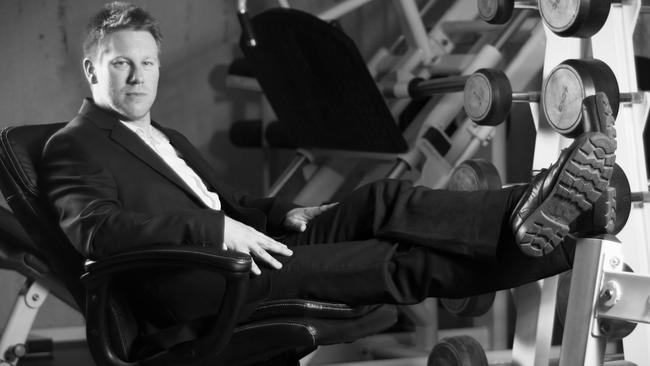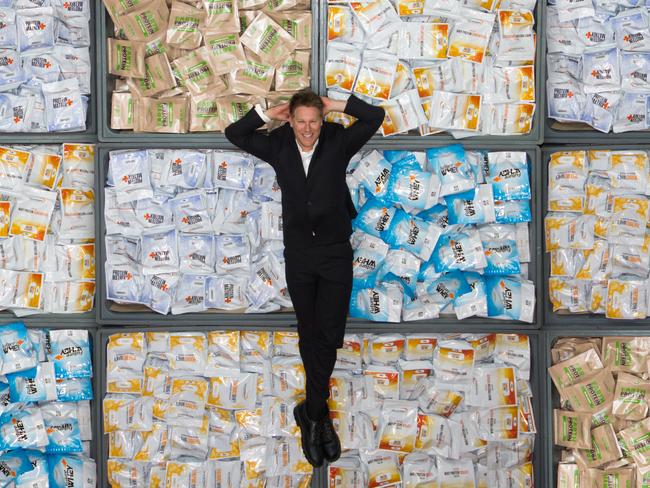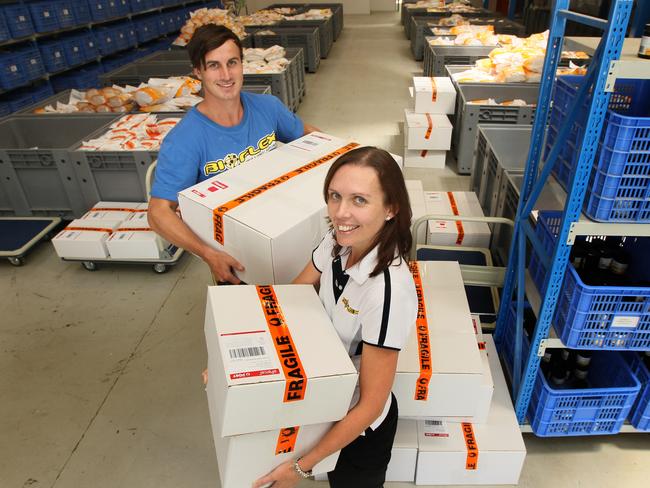Bulk Nutrients founder says he would ‘never start a business like this from scratch now’
BEN Crowley went from bagging up products in his home to making $27 million a year — but says he would never do it again.

THE founder of online supplements retailer Bulk Nutrients has revealed how he went from bagging up raw protein powder in his home to running a $27 million Tasmanian success story by undercutting mainstream brands by up to 50 per cent.
But Ben Crowley, a former gym junkie who founded the no-frills, direct-to-consumer business around 12 years ago at the age of 25, said he would never start the same business today.
“I’d never start a business like this from scratch now,” he said. “I was able to do things [then] because things were much more simple. It’s much, much more complex now. We wouldn’t survive just selling the basic [protein powder].”
The 38-year-old first got the idea for the business while teaching English in Japan for a year. “I was buying a lot of supplements direct from the US,” he said.
“I saw a big disparity in price between what we paid for the same supplements in Australia compared with America. I started looking at importing, and on further investigation I recognised that some of the best ingredients in the world came from Australia, particularly dairy.”
Mr Crowley said at the time — just when the online shopping and fitness industries were beginning to take off — he saw a huge gap in the market. “We had a lot of mainstream brands but they were quite expensive, because of the brands but also the distribution channels,” he said.
“At the time there was less competition in the Australian market. This was largely before e-commerce became very popular. I combined two growth markets, nutritional supplements and e-commerce, with a manufacturing model that takes out a lot of costs.”
Mr Crowley ran his fledgling business out of several converted rooms in his home in Hobart that had been approved for food manufacturing.
Today the company has more than 200,000 regular customers, a range of 150 products and releases 20 new products a year. This year, the business is on track to increase sales by 15 per cent to $27 million.
“In the very early days I had a mixer and I was bagging up raw products,” he said. “Now obviously we have millions of dollars worth of equipment [at our factory in] Grove, south of Hobart.”
One of his biggest challenges early on was convincing customers that products 30-50 per cent cheaper than the brands they were used to were trustworthy. “People were saying, ‘Why is it so cheap? You get what you pay for,’” he said. “Yes, you do, and what you’re not paying for with us is that supply chain.”
Mr Crowley said as competitors had sprung up with similar models, there was an increasing focus on developing higher-margin, more complex products. “We have now an R&D team of 50 full-time staff,” he said.


“We invest a lot of money in R&D. It’s all about new ingredients. There might be new research papers, it might be certain combinations work together — in many cases we’re not talking about radical leaps forward. It may also be a value proposition, saying you can have the same results for a better price.”
He said the big growth areas were plant-based proteins for the dairy-free and vegan crowd, and ready-to-eat products like pre-mixed shakes or protein bars. “We’ve also got a world-first product which is Future Whey,” he said.
“It’s a combination of free-form amino acids, which replicates a dairy protein in terms of its amino acid composition, but is also completely dairy-free, sugar-free and no allergy issues as well.”
But he said one of the big challenges today was engaging with the middle ground — between the fitness freaks and the totally sedentary. “We’ve got a growing population of people who are getting more and more into extreme exercise, whether to get really fit, for sport or for aesthetic reasons,” he said.
“But then we also have another proportion of the population who are getting much more overweight and inactive. We’re losing middle, regular, everyday healthy people.”
Despite the intense competition, Mr Crowley is upbeat about the future of the industry. “More than half of the companies that started at similar times to us don’t exist anymore,” he said.
“There’s a notion that in times of growth everyone thrives and survives, but I think actually a lot die out because they don’t have plans, don’t set themselves up well.”
The $1.3 billion vitamin and supplement manufacturing industry is expected to grow at an annualised rate of 7.4 per cent in the five years to 2018 amid rising health consciousness, according to market research firm IBISWorld.
The market — of which sports and nutrition products make up 31.5 per cent of sales, or about $410 million — is dominated by Blackmores and Swisse, which hold 41.2 per cent and 29.7 per cent market share respectively.
IBISWorld analyst Arna Richardson said specialty nutritional supplements retailers had felt the pinch over the past five years from “intensifying competitive pressures from competing pure-play online retailers, supermarkets and pharmacies”.
“The collapse of several key players has contributed to this segment’s recent weak performance,” she said. “Thus, this market has declined as a proportion of industry revenue in the past five years.”




